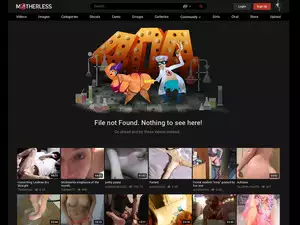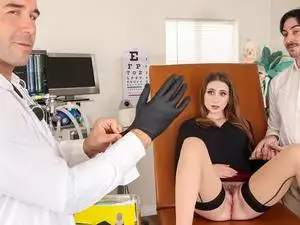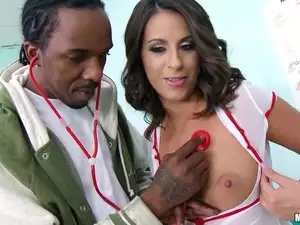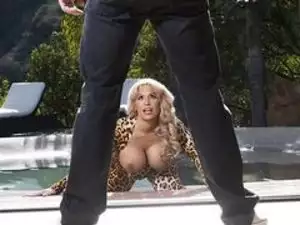Pyx 4 VacationChapter 6 Olympia
- 2 years ago
- 25
- 0

 1 year ago
1 year ago
What’s in the Pinup Files? It’s an innocent enough question, but how would you answer it if your mom asked? Pinups were invented a long fucking time ago, so they’ve been around your whole life unless you’re the most ancient motherfucker ever to visit ThePornDude. In all that time, it hasn’t changed all that much. We may be gawking at pinups online instead of in the pages of nudie rags hidden under your dad’s mattress, but the content is largely the same. It’s just in higher resolution.To be...
Premium Big Tits Sites 3 years ago
3 years ago
ALTERED FATES/X-FILES: THE SCAM By Bob H. (c) 2003 FBI HEADQUARTERS WASHINGTON, DC. FBI agent Fox Mulder was starting to hate working alone. Hidden away as he was in the windowless room of a back basement accessible only via a corridor lined with dusty storage racks, he often felt both unappreciated and as forgotten as many in the bureau would like the X-files themselves to be. He sometimes went days without seeing another living soul between the time he entered the J. Edgar...
 4 years ago
4 years ago
-- Anna And The Secret Files 1 --My stepson Allan called me and asked for a priority favor. He needed me to go down to a business where he'd just done a service call. He'd left a folder on their system that was personal, that got copied over by mistake. He wanted me to pretend to be double-checking the server setup, but then just quietly delete that folder. And he emphasized the personal nature of the folder, to just delete it and make sure no one else saw it."You can't go down there and...
 2 years ago
2 years ago
Cold Case Files: The Case of the Executed Environmentalist. The chronological order of my stories is as follows: Todd & Melina series, Interludes 1-5, Sperm Wars series, Russian Roulette series, Case of the Murdered Lovers series, Case of the Murdered Chessplayer series, The Swap series, Interludes 6-10, The Murdered Football Player Series, Case of the Black Widow series, Teresa’s Christmas Story, The Case of the Black Badge series, A Case of Revenge series, Trilogy Series, Dark Side Of The...
 3 years ago
3 years ago
-- Anna And The Secret Files 2 --Our story began with my discovery of some very interesting files Anna's husband had left on a system, files he'd desperately needed me to delete. I'd deleted them, but I'd kept a copy .. because they were files of Anna having all sorts of sex! Showing them to her gave me the leverage to get her to give herself to me. Holding her naked in my lap, we watched a video together. We discussed some of the things we were watching, and I learned more about Anna's sex...
 2 years ago
2 years ago
I was waiting for the end of this boring meeting with our client. It was important for our company. My boss even lent me his shiny car, so I could make a good impression at their facilities. But I was not totally focused on that meeting. I was eager for the end of it.We, you and me, were going to grab a coffee today, after work, and I was getting late for it. Finally, it's 6.30pm. The meeting is over. It went Ok. We sold our solution to them. The client chose us.I get into the car and I take...
 2 years ago
2 years ago
“What’s wrong? What’s wrong?”Anthea looked up at her mum as she sat down at the dining table. “Nothing is wrong,” Anthea responded watching as her mum hurriedly dried her hands with a tea towel.“Is the baby okay? Are you okay? Is Jack okay?” she asked as her husband came into the room and pulled up a seat at the table.“We’re all fine Mum,” she responded exasperated with her mum’s anxiety. “I have something to tell you.”“Sit down Helen,” her dad snapped. “Give the lass a chance to speak.”Anthea...
 4 years ago
4 years ago
Uther By Ellie Dauber (c) 2006 Introduction According to the legends of King Arthur, Merlin changed Uther Pendragon into a double for Duke Gorlois, so he could spend the night with Ygraine, the Duke's wife. Ygraine and Gorlois had three daughters: Elaine, Morgause, and Morgan le Faye. During their time together, Ygraine became pregnant with the child who was to become King Arthur. Uther's men killed Gorlois that same night. This is my TG (of course) version of what...
 3 years ago
3 years ago
The Phyllis Files: The Case of the Neighborhood Break-Ins. The chronological order of my stories is as follows: Todd & Melina series, Interludes 1-5, Sperm Wars series, Russian Roulette series, Case of the Murdered Lovers series, Case of the Murdered Chessplayer series, The Swap series, Interludes 6-10, The Murdered Football Player Series, Case of the Black Widow series, Teresa’s Christmas Story, The Case of the Black Badge series, A Case of Revenge series, Trilogy Series, Dark Side Of The...
 3 years ago
3 years ago
The Case Files of Cindy Masters, Dyke Detective This Episode: A Chance Encounter - Part Three This Episode: A Chance Encounter - Part Three Masters is the name. Cindy Masters. I'm a detective. I get $50 a day and expenses, $75 if I can get it. I lay back on the weight bench and placed my feet behind the leg brace for a few chest flies. My eyes darted about the room like a fly looking for a warm beer. The Case Files of Cindy Masters, Dyke Detective This Episode: A Chance...
 3 years ago
3 years ago
The the wind howled around the quayside as I stepped onto terra firma for the first time in weeks, the wind threw sharp shards of ice to sting our faces as we looked up at the sails as they were finally furled and stowed as our captain grinned at our discomfiture, "Au revoir!" he joked as if he knew we should soon be recalled. Those such as were left, and we were few enough, I shuddered. My best uniform packed securely in my Valise, awaited me, and just a few more duties before I...
 1 year ago
1 year ago
Do you know of the porn site Motherless.com? You should. I’ve reviewed it a few times on my site, The Porn Dude, although it was for different genres every time. This time around, I’m going back to this place and looking at a specific and niche little category many of you are just begging me to cover. We’re looking at vintage porn today. While it doesn’t have the same resolution and quality as the porn you can find today, it’s definitely a genre of porn that has a lot of personality to it and...
Vintage Porn Sites 3 years ago
3 years ago
I should have known better. I should have remembered that old saying, "If it looks too good to be true, it is." I was in love. She was damned near all I thought about with the exception of my studies and it didn't make sense to me. I prided myself on my intellect and my ability to think logically, but there wasn't anything logical about the way I felt about Althea. She was beautiful, smart and very popular and I was not. I wasn't a bed looking guy, but I was nothing exceptional. I was...
 1 year ago
1 year ago
Motherless. A one-word website title that says everything it needs to say. This is a site where the rules are, more or less, completely thrown out the window, morality means absolutely nothing, and there is nobody to save you from it. Hedonism is God here.The site likely is also called this due to the fact that the girls who end up on motherless.com likely have no positive female influence in their lives to keep them from it. Motherless is the place parents spend their whole lives fearing that...
Porn Pictures Sites 4 years ago
4 years ago
Disclaimer: The following story is not connected with the Star Wars franchise, or its creator, George Lucas and does not represent the characters, writers or producers of set franchise. Story Codes: Ff, bond, grope, oral, reluc Star Wars: The Restricted Files Part 8 – Ahsoka Tano vs. Asajj Ventress by Avatrek ([email protected]) While Leia Organa Solo and Mara Jade Skywalker took on the roles of slave girls in order to break the trafficking of slaves near Hutt Space, Jaina Solo furiously...
 3 years ago
3 years ago
Author’s note: This is a ‘spin off’ of my original story – ?It’s all in the mind.? – also available on this site.The story lines I have developed for ?Mind? have had the capacity to take me off in all sorts of new directions. I find that this can become annoying for the reader, and so I have decided to write some ‘case studies’ as separate stories.As always, this is pure fiction. Not a word of truth here!!I’m always pleased when any of my readers e-mail me with comments and story ideas. If...
 4 years ago
4 years ago
WASHINGTON, D.C.MAY 12, 19941145 EST When Wolfe Muldrew, Special Agent in charge of the FBI’s Strange Experiences Division, otherwise known as the SX-files, received the phone call from Mattheau Patine, he was pleased and surprised. He hadn’t heard from Matt since they had broke-up a few years ago. Wolfe had wanted it to be an amicable parting, but Mattheau had been hurt and bitter. He had heard that Mattheau had a new lover, he hoped he was happy.Mattheau said he needed to see Wolfe on an...
 1 year ago
1 year ago
I always considered Motherless the “4chan” of porn. Not only because Motherless was somewhat popularized there, but because Motherless also encourages users to share their own content in a very open way. This means minimal bullshit like moderation and censorship, and a strong “anything goes” attitude that leads to free and extreme content. It encourages people to create and upload their own homegrown content, like videos of their girlfriend pissing or spycam videos of their cousin....
Amateur Porn Sites 1 year ago
1 year ago
What is it about Motherless that makes me fucking cum every time? Maybe it is how raw and amateur the porn on the site comes across as, or the content is just that fucking hot. Perhaps it is the fact that there is an astronomical amount of pornography just waiting for a dumb fuck like you to beat off to! I really don’t know, and frankly, I’m not going to pretend that I do.But what I do know is that if you love BBWs, the Motherless.com homepage will not be of much use! Preferably, head on over...
BBW Porn Sites 1 year ago
1 year ago
Have you ever heard about a website called Motherless? Home to all kinds of kinky porn niches, with a side of the mainstream crap? If you are into some questionable fap content, you might want to check this website out. Plus, Motherless is a free porn website, so you can browse as much as you fucking want. Now, I am not really here to talk about the website in general… I am here to tell you about their amazing category, called voyeur porn.The world of voyeur fucking is a rather interesting one....
Voyeur Porn Sites 3 years ago
3 years ago
The Five Kingdoms of Arstoria had been embroiled in the Great Ancient War for centuries. The war came to an end when Kalace, the Wizard King conquered the five lands and brought them under his rule. Kalace, the Wizard King of Arstoria, conquered all of his opponents who were unable to deal with his overpowering magic. When Kalace had united the five kingdoms, he brought peace to the warring kingdoms and was revered and celebrated by his later generation. Kalace, however, had a dark weakness in...
Fantasy 1 year ago
1 year ago
Woah, did Motherless.com get a facelift? I know I suggested it in my review, so I guess they listened to me! Well, I’m not going to brag too much about it, and instead, I’m going to focus on what I’ve set out to bring you today. We’re looking at an amateur website, and I just know that many of you are begging for amateur creampie content, so that’s what we’re looking at. I know how much you think Motherless can look sickening and pretty gruesome at times, but the creampie content can be quite...
Creampie Porn Sites 1 year ago
1 year ago
No matter what type of porn you may be in the market for, Motherless has an ample supply of it, and cucking is no different. Actually, this might help to explain how you ended up being such a pussy little cuck.The journey that brought you to my website reading cuck porn reviews started in your childhood. A fair portion of my readership is actually motherless. Why, you ask? Your guys' moms chose a life of cucking and riding cock instead of raising you fucks properly.Don't worry, gents. I'm in...
Cuckold Porn Sites 1 year ago
1 year ago
I browsed the horror stash at Motherless all morning, and now I don’t know if I should jack off or go hide in the closet until the danger has passed. Then again, hiding out might give me the perfect opportunity to rub one out in the peace and safety of the dark. Who knows who—or what—might be peeping in the windows with nefarious intent if I sit at my desk and shake my dick at the screen. Just like when I masturbate at the local Starbucks, I’ve got to be sure to balance the potential pleasure...
Extreme Porn Websites 1 year ago
1 year ago
Incest porn has been a staple of pornography since the very first incel caveman realized that he couldn’t find fresh pussy out and about. He resorted to sniffing a whiff of his mother’s loincloth when she wasn’t looking, and beating his old cave meat into a leather sock.Now personally I’m not into the whole mommy-son dynamic – I’m a classy guy. But it’s no secret people like to get freaky when the lights go out, and if you’ve got a stiffy in your hand and you’re on Motherless, you gotta go...
Incest Porn Sites 3 years ago
3 years ago
Thanks to my usual cast and crew of Editors and Advance Readers, most of whom prefer to pretend that they don’t know me and wisely wish to take no responsibility for any part of my addled writings... Il n’est rien de réel que le rêve et l’amour - Nothing is real but dreams and love (from Le Coeur innombrable, IV, Chanson du temps opportun by Anna de Noailles) She was my one true mistress and ever faithful lover, my Green Lady and guardian of my dreams and now that I was back home...
 3 years ago
3 years ago
When the car with Jake in it became a dot on the horizon, Thea turned to go back in the house. Suddenly Floyd appeared. “Mrs. Thea, how you be?” Smiling, she knew immediately what he wanted. He had that look and a glance at his crotch confirmed it. The imprint of his cock was prominent as it pushed against the material. “Looks like everyone is gone.” Floyd said. His eyes looking out over the farm. “Yes, I am by myself for at least the next few days.” She replied in an...
 3 years ago
3 years ago
“Well, hell,” Thea said as she wiped the beads of perspiration from her face. “I guess ‘spring’ is here, huh?” “Yeah. It’s supposed to be cooler at higher elevation,” I replied. We took a few minutes in the shade by the rocks before rejoining our boyfriends. The four of us had driven up into the pass to hike. According to the weather report, the last coolness of a fading winter was supposed to continue through mid-week, but they were wrong. Actually, from our view from Eagle Point, where we’d...
 1 year ago
1 year ago
Motherless.com! What an original name for a porn site, don't you think? The title doesn't fuck around: your mother would never allow you to watch the kind of filth they’ve got on tap. They pride themselves on being a moral-free zone for sick fucks, where you can find damn near anything. I’m talking about desperate chicks fucking anything that resembles a dick and crazy bitches literally eating shit. When you’re done fapping to the weird vids, you can even find "normal" porno to pass the time....
Free Porn Tube Sites 1 year ago
1 year ago
Ah, motherless, here we are again. A site known for offering such a variety, that no matter how fucked up your needs are, there is a high chance that you will fulfill them here. However, I am not here to blab about the site in general; I am here to talk about one particular category, interracial. As for those who want to know more about the site, there is a whole different review on my website instead.As for those who came here to learn more about that interracial lovemaking, I got your back....
Interracial Porn Sites 3 years ago
3 years ago
Permission is given to do whatever you want with this story, I'm not picky. Fair warning before reading, when I write stories I'm a writer, and a bad one at that. I am not a businessman, lawyer, doctor, theologian or hair care expert. Though I do have a working knowledge of many of these fields, I am an amateur not a professional. So, there is probably a whole bunch of factual errors in this piece. I did what research I could, but the primary goal was to tell a story, not write a...
 2 years ago
2 years ago
Theo had been changing into the squirrel too much, he knew that now... as a pulse of heat raced through his body from his groin. He realized that he shouldn't have come to the office.He had been spending most of his days at the squirrel in his home deep in the countryside. Teleworking most of the time, as the squirrel he felt no need for clothes, his heavy furred balls resting between his thighs as his paws raced over the keyboard. The sharp claws on his paws clattering loudly as he typed,...
Fantasy & Sci-Fi 1 year ago
1 year ago
It’s time to go to the land of chocolate fountains and golden showers. That’s right. Scat, piss, shit, and every fluid in between. Ever fuck a chick in her ass and freak out when you see that little bit of shit on your dick? Then I’m sorry to say that scat isn’t for you buddy. Were you the only one of your friends that saw two girls one cup and didn’t get grossed out? If so, it’s time to celebrate it! Don’t get pissed off, get pissed on! Scat porn has the craziest, kinkiest chicks and dudes...
Scat Porn Sites 1 year ago
1 year ago
I’m not saying anything controversial when I say men love seeing women naked. It’s a fact of life as fundamental as gravity. It’s a force of nature that cannot be stopped by beast, man, or God. It’s an eternal truth and a divine mandate. As sure as the sun will rise, men will attempt to view as many women naked as they possibly can. Any man not doing so is either a sad or a gay one.This means that any woman a man sees regularly is mentally stripped down during every interaction. If any women...
The Fappening 3 years ago
3 years ago
‘To me it’s not really a green. When I think green, I think of grass. That’s more like lemonade color.’ Erica’s nose was far too close to the glasses for my taste. Pouring the nearly clear absinthe over the rough-cut, cane-sugar cubes I favor, I tapped my spoon for a second to get her to back up. I wished I had my full setup here like I have at home, my Absinthe fountains water drippers are missed when I began to try and slowly pour water over the sugar cube. ‘Don’t you light it on fire?’ she...
 4 years ago
4 years ago
Although thoughts of Erica made it difficult for George to concentrate for the remainder of the afternoon, he finally finished the tax return forms that he was working on for Allison Callow. He'd called her to say they were finished and she'd offered to come around and pick them up. George, wanting to spend his time thinking about the work for Erica, put her off. "No," he said, "don't worry. I'll post them." Allison had seemed disappointed for some reason but George didn't really...
 1 year ago
1 year ago
Have you ever heard about a wonderful site called “Motherless”? I have a feeling that was a dumb question, of course, you fucking have. Well, I am here to talk about Motherless, but I shall also pay special attention to their Arab category. If you think Arabian sluts are hot, well you are in for a tasty treat, believe me.First, I should probably warn you that the name of this place comes from the fact that their content might be a bit too hardcore or questionable for some of you. Back in the...
Arab Porn Sites 1 year ago
1 year ago
Fuck yeah, life’s a bitch! So here I am, awake at 3:45 AM, after dreaming I was fucking this freaking hot MILF neighbor with heavy boobs, a flat tummy, a nice bubble butt, and sexy long legs. It was all hot and steamy, up until when she was sucking me off and just as I was about to obliterate her cute face with hot cum canon, my dream cut right off and I woke up with a tent on my pajamas.That dream ain’t coming back, but damn it! I sure gotta cum, so I boot up my laptop and type “cum facial” in...
Facial Cumshot Porn Sites 4 years ago
4 years ago
Und draußen schallte wieder Punkmusik aus dem Ghettoblaster – von der Eisenbahnunterführung bis zu seinem Haus! Punks und Skater hingen da ab. Das war diese Art von Jugendlichen, die ihren Eltern das Leben schwer macht , die von Arbeit nichts hielten, sich an keine Regeln hielten, ständig auf Party machten. Die soffen viel zu viel und kotzten dann in irgendeine Ecke. Denen bedeutete doch nichts und niemand etwas. Wahrscheinlich nahmen sie auch Drogen und trieben weiß-Gott-was mit...
BDSM 1 year ago
1 year ago
Motherless is the mother of all porn sites. Motherless has no conscience or moral guide. Motherless will show you the stuff that all other porn sites are afraid to put up. Motherless will do this for free. This is seriously one of the nastiest and raunchiest sites out there and Motherless/Fetish is perhaps one of the dirtiest places on the web that are well within reach. Sure you can scan the dark web and find something even more naughty or puzzlingly gross, but why do that when you’ve got...
Fetish Porn Sites 3 years ago
3 years ago
Absinthe 2: The Absinthe of Malice By Morpheus The flight from Seattle to Boston had been extremely long and uncomfortable, even with the two hour delay in Chicago where I got to stretch my legs and change flights. My book had given me something to do during the countless hours in the air, though admittedly, Collin had been my largest savior from boredom. The two of us had ended up talking for over half the flight, and by the time we finally landed, I was even starting to consider...
 4 years ago
4 years ago
Soft Lee After working the normal day shift in the warehouse, Eddie had moved to night shift restocking. For over a year he had heard talk of “Softly”, the district auditor. She was said to be a dark haired beauty with alluring eyes, shapely and sexy. Her schedule was always uncertain but everyone brought their A-Game when she was around. It was implied that she was an “ice queen”, totally untouchable. Training with Charlie on night shift he asked more about her. Charlie took him up to her...
 2 years ago
2 years ago
After tea on the Friday evening Thelma stopped me as I was going into upstairs to my room. Her eyes looked wild and her breathing was heavy. “I’m going to a party,” She said in a low voice, “do you want to watch me getting undressed?” I nodded like a puppet. “Wait in my room…I’ll be up in five minutes.” I skipped up the stairs two at a time! I nervously let myself into my sister’s bedroom. I’d been in many times before – borrowing her dirty knickers and stuff to use...
 4 years ago
4 years ago
Harry and Rob sat in the local pub in their usual spot in the corner by themselves. They were having a discussion about what to do with Ethel. Rob has been adamant that he wants to hang Ethel by her ankles and butcher her. Harry strongly disagrees with him. Harry is convinced that if he talks to Ethel he can persuade her not to go to the authorities and they will be able to use her the same way the other men. Rob agrees to try Harry's way first but he says" if she wants to argue I'm going to...
 4 years ago
4 years ago
kEthel sat with her tits nailed to the work table. Her tits were swollen to twice their normal size from the beating they had received from Harry and Rob and the axe handle. Ethel sobbed both from the pain and the feeling of despair and hopelessness. She knew she would not be able to sweet talk the men into letting her go without anymore abuse. Harry and Rob arrived and again Ethel begged and pleaded with them to let her go. The men laughed and told her they still had a few more things they...
 1 year ago
1 year ago
Note : This story is completely fictional!In nineteen forty six Thelma Lou Anderson was married with three kids. Linda was the oldest. She was sixteen. Guy and George was ten and Guy seven. Thelma owned a beauty shop in Kansas City. She suspected her husband Lawerance was cheating on her again. She followed him one day when he thought she was at work and saw him go into a house. A woman opened the door and he went in. That was all the proof she needed. She went home and packed her suitcase and...
Incest 2 years ago
2 years ago
Thelma was 22 and like all of the young women at that time was still living at home with me and our parents in rural Kent; even though she had a good job in local Department Store. I was 15 and had just left school. The summer of 1965 was particularly fine so it wasn’t uncommon for me to sit around our secluded garden reading a Detective novel when my parents were at work. The difference today was that Thelma was on the first day of her annual holidays and had joined me wearing a very...
 3 years ago
3 years ago
Ethel hung by her wrists while Harry and Rob left to get some rest. She nodded off from time to time but the fog of her mind cleared she realized that other than when they punched her she actually enjoyed the way they that fucked her so hard and so brutally. She enjoyed the helpless feeling as they ravaged her body. She believed that she could talk to the two men and they would release her without too much more abuse. She was wrong.As Harry and Rob drove back out to the warehouse they talked...
 3 years ago
3 years ago
Ethel hated her name. She was born during the tenure of I Love Lucy. The beloved Ethel Mertz from the television show was the bane of the real life Ethel's existence. There were the jokes about her having to marry Fred. There was only one Fred in her high school class. He wasn't her type; not even if he was the last man on earth. Ethel was every bit the epitome of her name. At five feet even her looks, dress and vocabulary mimicked the character she despised. Although she fought to break the...
 4 years ago
4 years ago
Yin had yang. My bad luck should come to an end sometime. I was born poor. I was the youngest of the family. I had older brothers looking good and they had success with girls. My sisters were stunning and my mother just looked fabulous, always being nice to everyone except for never being nice to me. Oh yes, I was being seen at school and welcomed by others but only to be stepped on. The odd moments I had a job there was always something happening outside my influence having me...
 4 years ago
4 years ago
The Case Files of Cindy Masters, Dyke Detective This Episode: A Chance Encounter - Part Two by Trapper Jock McIntyre I got to Won Huong-Lo's and ordered a bowl of chop suey. Won was a chubby looking guy with a basket between his legs that resembled a hamster munching on carrot, a sight that made me give thanks for the fact that at least I can pick and choose the contents of my Fruit of the Looms. As I sat there chasing some rice around the plate with my chopsticks, Won came out of the...
 3 years ago
3 years ago
The Case Files of Cindy Masters, Dyke Detective This Episode: A Chance Encounter - Part One by Trapper Jock McIntyre Masters is the name. Cindy Masters. I'm a detective. I get $50 a day and expenses, $75 if I can get it. I was sitting in my office trying to figure out how to get lipstick stains out of a silk tie, or preferably onto one, when I heard the clickity-clack of high heels coming down the hallway toward my door. I looked up to see a silhouette through the frosted glass that...
 2 years ago
2 years ago
SEBASTIAN: Why would you argue about that? MICHELLE: I didn't. That was them. They were a little drunk. We were all drunk. We'd had enough of the family gathering and we were hiding and being bad. Except we didn't plan on being that bad. SEBASTIAN: Indeed. Can I ask, who has the better body? MICHELLE: Oh, probably my sister. She's stunning. But my brother is pretty hot too. It's close. Call it a tie. SEBASTIAN: So they were arguing... MICHELLE: They were joking around. We...
 4 years ago
4 years ago
GARY: Well, I'm pretty sure it's going to be a disaster. SEBASTIAN: In what way? GARY: In what way? In every way. If our parents find out—what a nightmare. If anybody finds out. What is she telling her friends? That's what I worry about. And what are her friends telling her? I'm pretty sure that's where she got the idea in the first place. SEBASTIAN: So she initiated this. GARY: Yes. It was during the summer, when she was back from college. SEBASTIAN: She is nineteen, and...
 4 years ago
4 years ago
Ethel's Pa was telling a story. "A man comes into the garage wanting a new horn for his Dodge. The old bulb was torn. Well, we have horns; but they don't fit his brackets..." "What did he want with a horn?" Ma asked. "Dodge cars don't need them. They have 'Dodge, Brothers' written clearly on the front." "Oh, Nellie," Pa said, but -- at least -- he dropped the story. Ethel couldn't decide which was worse, Ma's jokes or Pa's stories. Pa was fascinated by anything mechanical,...
 3 years ago
3 years ago
Damn Katherine and her classy fashion sense... Once again my Mother-in-law had a new skirt suit which would work for brunch, mother-of-the-bride or some other fancy occasion, it was simply lovely. Tonight was one of those other occasions. The suit was perfect for the work awards dinner that my wife Veronica has dragged me too. Katherine, on the other hand, who was looking just so, was all too happy to attend. Katherine's suit is simply irresistible to me. The color, the style,...
 2 years ago
2 years ago
Let me say right up front that Gunther was definitely not a young man.I knew he had been around the Santa operation at the North Pole long before I arrived with my bright ideas for cost reduction. I was called in to promote increased toy production by the easily distracted Elves. Those little imps preferred being silly rather than busy little workers focused on their quotas like dedicated employees. As a small-sized human male, I was able to relate easily to the female Elves because they liked...
Fantasy & Sci-Fi 4 years ago
4 years ago
Chapter One: In The Beginning There are those of us who still remember the Private Investigator of old like Phillip Marlow and Sam Spade. For those to young it’s a pity for you certainly missed one of the most golden of eras when a Private Eye was tough. He gave no quarter and expected even less for himself. It’s my hope for the older generation to turn back the clock a few years so they may remember those wonderful days past. As for the younger ones, I hope to bring them some of the joy we...